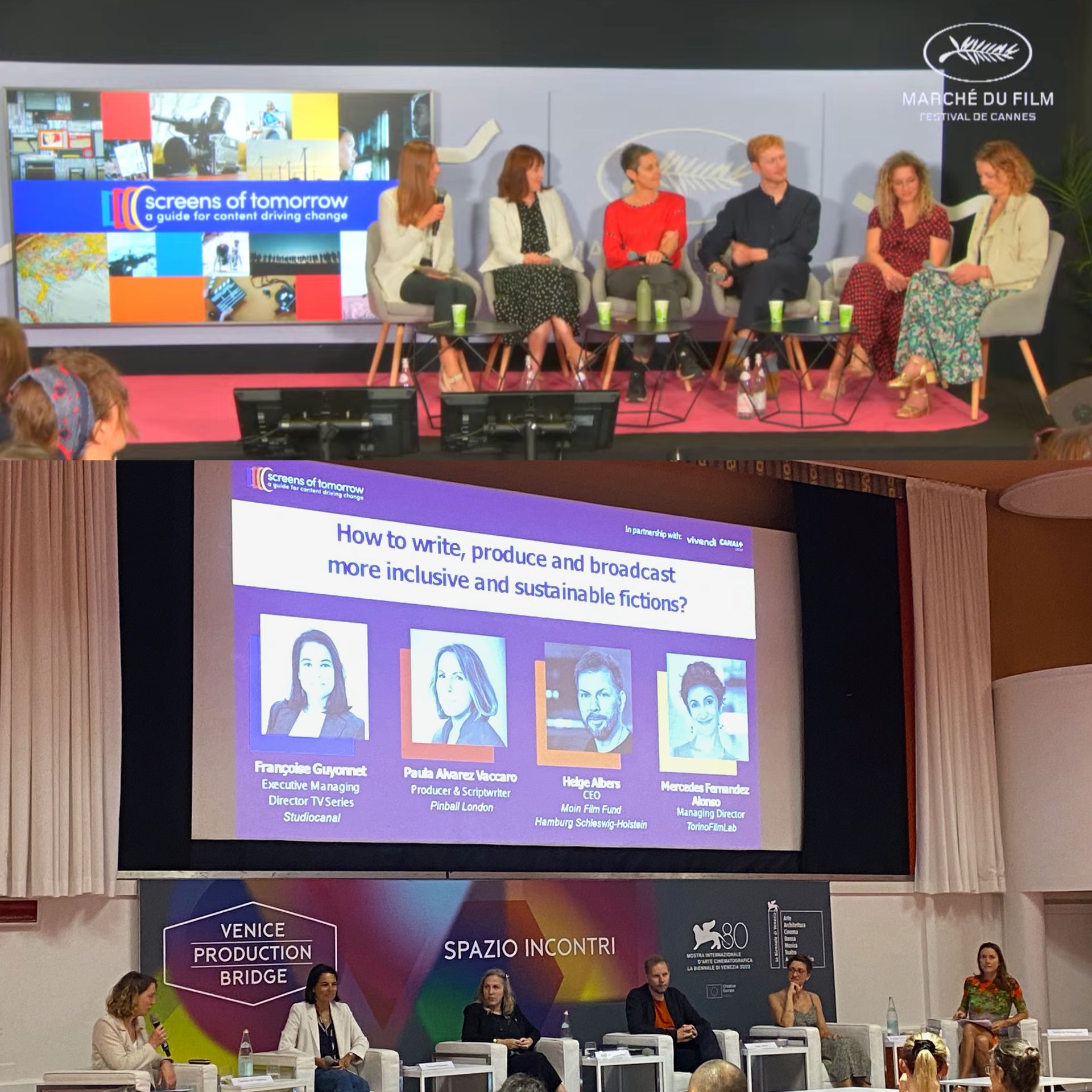The collective
Screens of Tomorrow is an initiative first started by TV and film professionals before being joined by those in the video game industry. They combined their industry expertise to create a tool to accelerate the evolution of their respective industries and their stories.
This non-profit approach was initiated by Sparknews (environmental and social storytelling expert) before being adapted to the video game industry in partnership with the Syndicat National du Jeu Vidéo and with the support of ADEME (The French Agency for Ecological Transition).
None of the participants had a private interest in this collaborative project, but all have found it to be of collective interest for their work and their teams.


September 2021 – September 2022: Birth of the Movement and Creation of the Audiovisual Guide
Sparknews, Get the Moon, and média Club’Green launched a new approach by bringing together stakeholders in the audiovisual creative chain to reflect on how to better integrate social and environmental issues into fiction. After conducting an industry-wide inventory and analysing the tools already available, they brought together more than 170 professionals for an event that highlighted the industry’s commitment to the issue of narrative.
Together, they decided to create a tool to help industry professionals reflect upon their writing routines to create more inclusive and sustainable narratives without restricting creativity. More than sixty industry-leading professionals participated in collaborative workshops to create and test the guide.
December 2022 – May 2023: Launch of the Audiovisual Version of the Guide in French and English
The audiovisual guide is published as an open-source tool and includes 3 questionnaires and a resource centre. Major groups like Mediawan, Canal + and Newen make the guide part of their environmental policies, and it is deployed to teams via workshops.
The English version is launched as an open-source tool under the name Screens of Tomorrow during an event panel at the Cannes Film Festival, followed by another round table at the Venice Film Festival in September. Several European networks join French networks in promoting the tool among their members.


December 2022 – October 2023: Co-creation of the Video Game Version of the Guide
At the same time, the approach is adapted by and for video game professionals, under the guidance of Sparknews, in partnership with the Syndicat National du Jeu Vidéo and with the support of ADEME (The French Agency for Ecological Transition).
Several collaborative workshops were conducted to identify themes and questions specific to the gaming industry in order to include references to more inclusive and sustainable societies in games and to limit their environmental impact.
More than twenty studios and publishers, accompanied by associations and experts, participated in these exchanges to create a questionnaire adapted specifically to their professions.
December 2023: Launch of the Video Game Version of the Guide
The video game questionnaire is launched as an open-source tool. Platforms in both French (L’écran d’après) and English (Screens of Tomorrow) allow access to both the audiovisual and video game versions of the guide.

Our vision
The professionals in this collective are convinced that both the audiovisual and video game industries have a role to play in the current environmental and social transition. The content shown on screens and in video games has always played a part in creating reference points for our societies that can be used to raise awareness. By normalising more sustainable and inclusive content, video games can change the general public’s attitudes and behaviour. These professionals wanted to pool their thoughts and concerns to improve their respective industries as a whole. From the outset, this approach was intended to bring people together, from all different trades and companies, so competition could give way to new models of collaboration.
This unprecedented collaborative work was guided by a positive and unifying approach to allow the questions raised by the guide to enrich not only the video games (the creative elements) but also the studios themselves (social and environmental responsibility). It was also rooted in a desire to reach as many people as possible through all types of games and gameplay, without restricting creativity. From the outset, this constantly evolving guide was designed to be an open source tool that everyone could make their own.
With the support of
